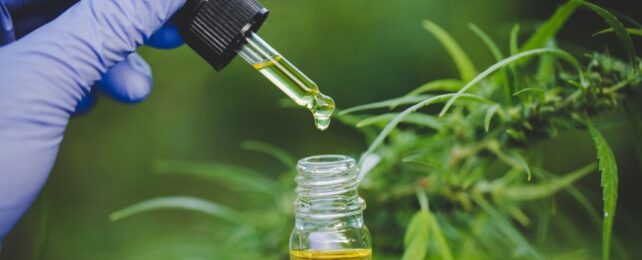A lesser-known compound found in cannabis plants is on the rise and could one day give CBD (cannabidiol) a run for its money.
The first human clinical trial to test how cannabigerol (CBG) impacts anxiety and stress has turned up encouraging results among 34 healthy users.
CBG has recently become known as the "mother of all cannabinoids" because it can rapidly metabolize into CBD and THC (tetrahydrocannabinol) – the psychoactive compound in cannabis.
In the recent trial, those who took a tincture of CBG reported significantly reduced feelings of anxiety and stress in the hour after ingestion, compared to when they took a placebo.
Much to the surprise of researchers, participants also scored slightly better on verbal memory tests after taking CBG.
Previous studies have found that cannabis products containing THC reduce verbal memory scores by about the same extent.
Like CBD, however, CBG does not have the same intoxicating effects as THC.
Psychologist Carrie Cuttler of Washington State University and her colleagues are intrigued by their results, but they do not want to let the increasing hype around the CBG market outpace the actual science, as has been the case with CBD.
"It would also be interesting to examine whether CBG might offset the detrimental effects of THC on verbal memory, as CBD was initially purported to do, until multiple attempts to replicate those findings failed," write the authors in their published paper.
CBD is the most famous, non-intoxicating cannabinoid found so far – with the potential to treat insomnia, anxiety, and possibly chronic pain. Yet despite the fact that many CBD products are often marketed as cure-alls, the scientific evidence behind many of these claims is lackluster or missing altogether.
The same is even more true for CBG.
"We need to avoid claims that CBG is a miracle drug," warns Cuttler.
"It's new and exciting, but replication and further research are crucial."
CBG is only found in cannabis plants in trace amounts, and it has been historically overshadowed by THC and CBD.
Out of the 100 or so cannabinoid compounds that scientists have so far found in the plant genus, however, CBG shows some of the most promising results in preclinical studies.
In some animal studies, CBG shows potential anti-inflammatory and pain-relieving effects. It can also reduce seizures in mouse models of child epilepsy.
Until now, however, there have been only two published human clinical trials on the effects of CBG – neither of which looked at its potential to treat anxiety.
The recent experiments from Cuttler and her colleagues are an attempt to fill that gap.
In the first part of the trial, half the participants took a placebo, and the other half took a CBG tincture. None, not even the researchers, knew who was taking what.
After swallowing the tincture, participants rated their mood, stress, anxiety, and other variables, such as feelings of intoxication, or side effects, like dry eyes or mouth. They did this 20 minutes, 45 minutes, and 60 minutes after ingestion.
One week later, this was repeated, with participants who received the placebo receiving the tincture and vice versa.
The experiments were conducted remotely over Zoom, and participants taking CBG only scored lower on one global test of anxiety, not on another more specific anxiety test.
Despite these limitations, the initial findings on CBG's potential to treat anxiety and stress align with a prior survey by some of the same authors.
In the survey, most CBG users said they took the extract to manage their anxiety. And many of those surveyed said they found CBG more effective than conventional medications.
Nearly a third of respondents also reported using CBG for depression. The current trial, however, did not show any significant effect on the mood of participants.
This may be due to the experiment's low dosage of CBG, or the fact that depression rates were already low in the small study cohort.
"CBG is becoming increasingly popular, with more producers making bold, unsubstantiated claims about its effects," says Cuttler.
"Our study is one of the first to provide evidence supporting some of these claims, helping to inform both consumers and the scientific community."
The study was published in Scientific Reports.
